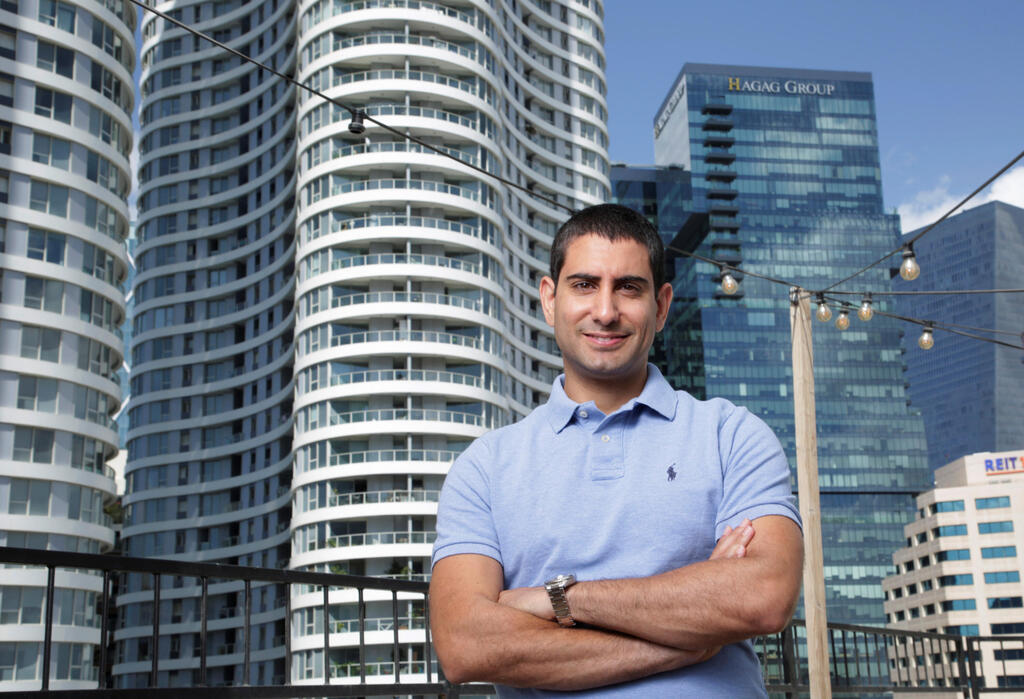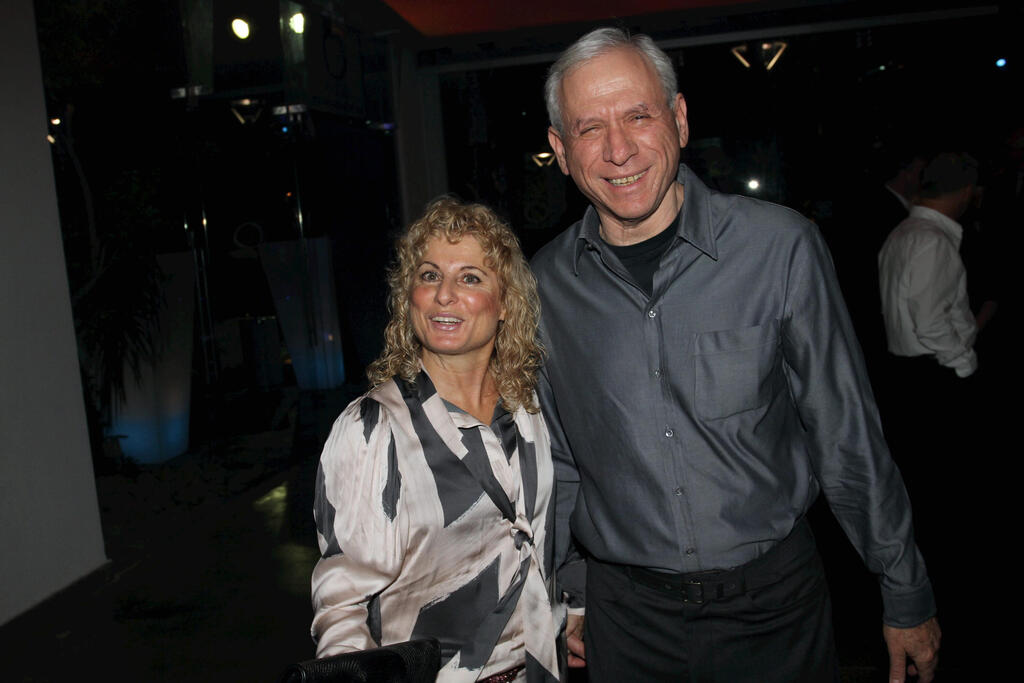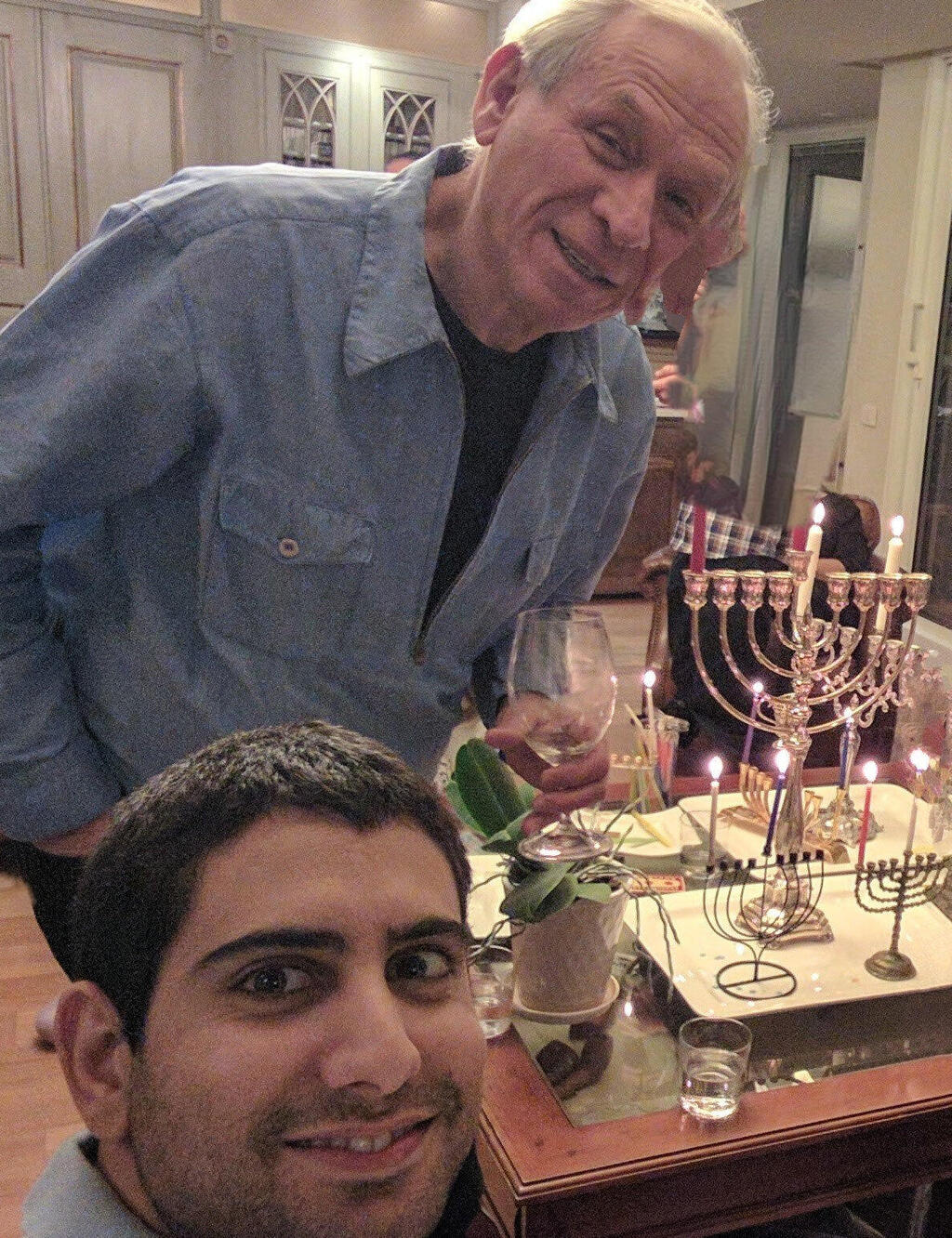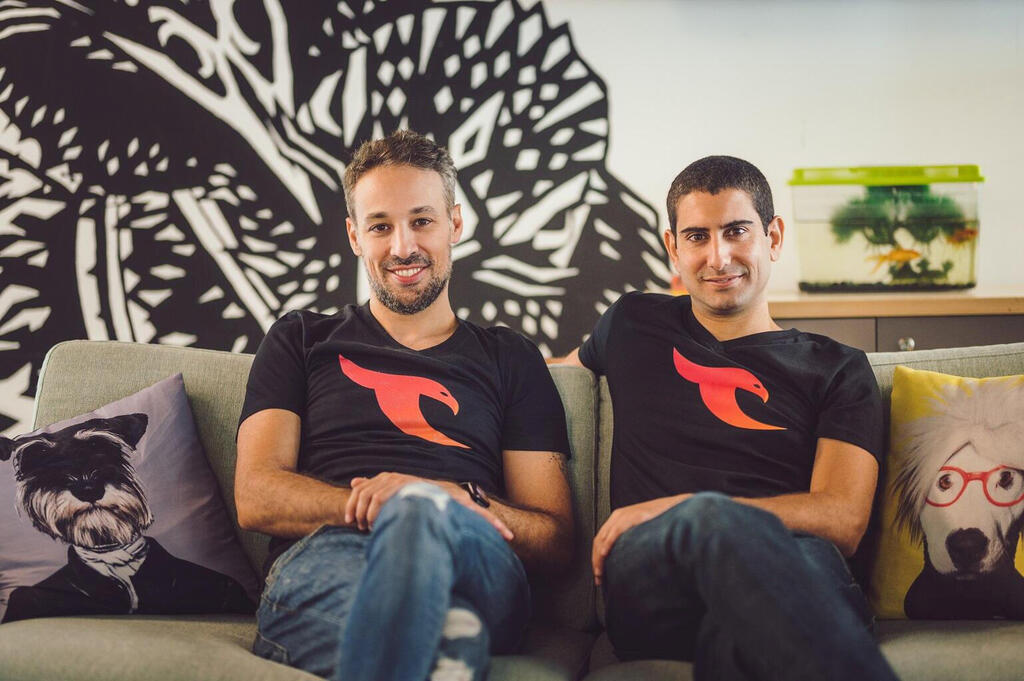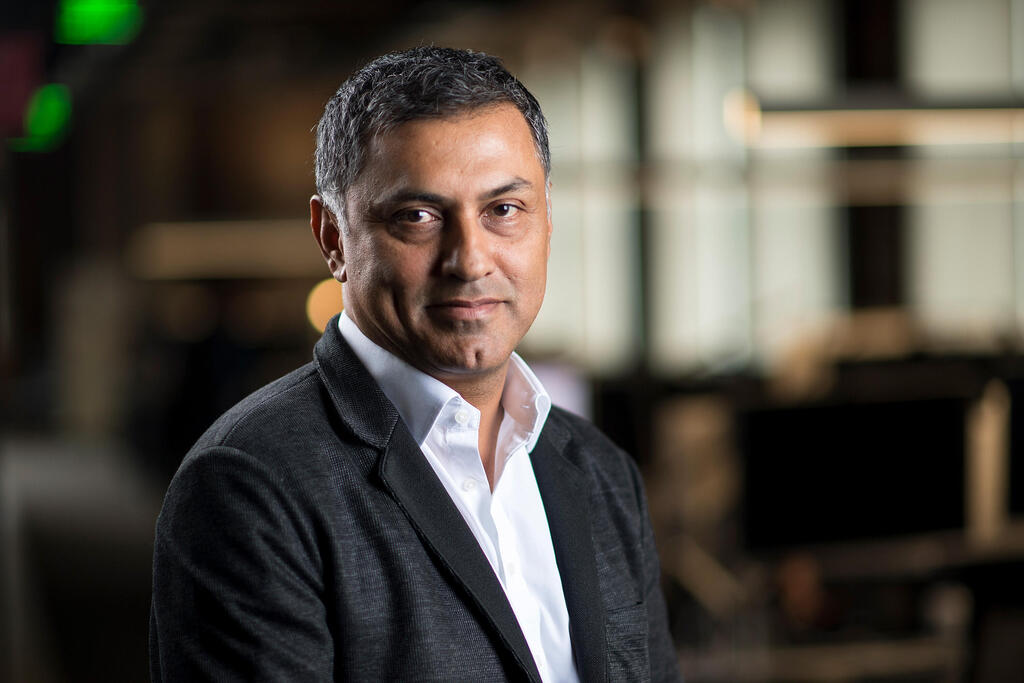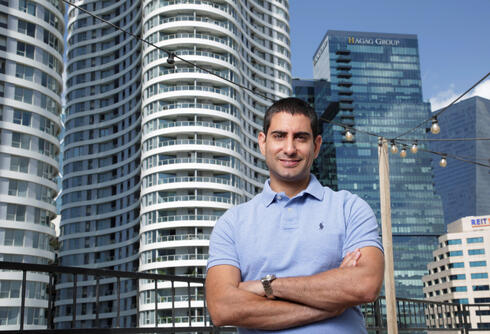
Ofer Ben-Noon’s billion-dollar journey to Palo Alto Networks: Mentored by Zohar Zisapel
At 38, entrepreneur Ofer Ben-Noon already has two exits worth more than a billion dollars, including the sale of Talon to Palo Alto Networks at the height of the war. In a candid interview, he shares his close relationship with the late Israeli high-tech pioneer Zohar Zisapel, who became a father figure and transformed him from a "talented entrepreneur to a successful one."
"There are many very talented entrepreneurs, but the difference between a talented entrepreneur and a successful one is having someone who opens doors for you, guides you, shows you the way, and helps you overcome the first obstacles and that was Zohar for me."
At just 38 years old, high-tech entrepreneur Ofer Ben-Noon boasts a track record that few can match, with two impressive exits already behind him. In 2017, he sold Argus, a cybersecurity company for vehicles, to the German Continental for $450 million. And last November, he sold Talon Cyber Security, a startup that developed a secure browser for remote work, to the cybersecurity giant Palo Alto Networks for $625 million.
Ben-Noon is part of a second generation of successful entrepreneurs—his mother, Rachel (Heli) Ben-Noon, founded the communications companies Arel and ArelNet in the 1980s and served as executive chairman of Radcom. "From a young age, it was clear to me that when I grew up, I would be an entrepreneur like my mother," says Ben-Noon. However, his mentor, who paved the way for his enormous success, was actually his mother’s partner—Zohar Zisapel, founder of the RAD-Bynet group and one of the fathers of Israeli high-tech. Zisapel passed away about a year and a half ago after a long battle with cancer.
"He died four days after the brit milah (circumcision) of my son Ori," Ben-Noon recalls. "He was an amazing grandfather to my children. We felt he was really waiting to be at my mom's birthday and Ori's brit, and he held on until then."
When did he enter your life?
"When I was 23. I was still in the army, about a year and a half before my release. At that point, I was a ‘talented kid on paper’: an officer in Unit 8200, with a high school graduation average in the top half percent in Israel, good genes, and a mother who was an inspiration in every possible way. But Zohar transformed me from being talented to successful.
"He was incredibly significant in my life from the start. I was very interested in the world of startups, and Zohar was the best entrepreneur in the country’s history—the father of high-tech. These were the early days of angel investments in cyber, and he was the first investor in companies like Adallom and Armis. He brought me in to give my opinion on projects he was considering."
Why did he reach out to you?
"It's clear to me that he could have easily brought in any other expert, but perhaps because I understood technology from my military service, he wanted to involve me more in the field."
After Ben-Noon’s army service, Zisapel gave him office space in his building, allowing him to develop a startup under Zisapel’s supervision and guidance. "He put me on the fourth floor of the Ziv Towers in Ramat Hachayal while he was on the ninth floor. Eventually, he moved me up to the tenth floor so I could be closer to him."
What did mentoring look like on a daily basis?
"I would call him three times a day, and whenever I needed something, I would go up. His secretary would tell me when he finished up, and I’d time it so I could ask him questions. I'd show up five minutes early and say, 'Zohar, sorry to bother you, just a quick question.'"
What would you consult him about?
"Everything: ‘I want to hire a personal assistant—should I do it now? How will it be perceived?’ ‘We didn’t budget for a certain candidate, but he's exceptional—can I hire him?’ ‘I’m thinking of spending NIS 30,000 ($8,000) on office renovations—is it worth it?’ ‘The employees want to upgrade the kitchen—how will that affect the corporate culture?’ He always took these questions seriously and gave me thoughtful advice, as if we were going to war."
How long did that continue?
"In the first year, we joked that I called him three times a day. Then it went down to once a day, and eventually once a week. But at a certain point, I started doing the opposite of what he recommended," Ben-Noon laughs. "He claimed I did the opposite of three out of four of his suggestions. I said it was more like one in ten. We’ll never know the exact stats. But my approach is to use the knowledge of those who can help me avoid mistakes."
"Zohar always said my strongest skill as an entrepreneur was knowing what to ask and ensuring I got enough feedback from experienced people to avoid mistakes. Looking back, we made very few mistakes at Argus. We understood which decisions required consultation. Prestige doesn’t come from making decisions alone; it comes from preventing failure. I don't care if the decision was mine, only that it was correct."
Zohar did more than just offer advice—he gave you tremendous support, especially in investments.
"Without him opening the door, we wouldn’t have been able to raise the seed round for Argus. Fourteen funds told us 'no.' It was tough. There was one fund that hesitated, and Zohar told them: 'Listen, I don’t need you for the seed round. If you don’t want to invest, just say so, and I’ll do the whole round myself. Give us an answer within 24 hours, or I’ll do it myself.' They hesitated but eventually got on board. It was the ability to move forward, knowing someone had your back."
Did doors open when people heard the name 'Zohar Zisapel'?
"Exactly. And today, I try to do the same for the entrepreneurs I mentor. Back then, Zohar dedicated a significant amount of his time to it. The automotive industry hadn't gained much traction yet—this was before Mobileye’s success. Everyone mocked the field, saying no one would touch it with a ten-foot pole, but Zohar made it happen."
Do you think you would have achieved the same success without him?
"You never know for sure, but there's no doubt he made a huge contribution. Zohar was the enabler, but the exits ultimately speak for themselves. Talon received the highly significant stamp of approval from Palo Alto."
"They told us, 'What you’re doing is disgraceful. We don’t want to work with you.'"
The interview with Ben-Noon takes place at Talon’s offices on Menachem Begin Street in Tel Aviv, now converted to Palo Alto Networks. There are still colorful cushions with 'Talon' printed on them, but the large sign at the entrance and the corporate security questionnaire make it clear this is no longer a start-up—it’s part of a huge American corporation.
The secure browser developed by Talon, TalonWork, enables companies to effectively protect remote work, which has become essential since COVID-19. Ben-Noon co-founded Talon in 2021 with Ohad Bobrov, who previously sold Lacoon Security to Check Point for around $100 million. Talon, which raised $126 million since its inception, now employs over 150 people in Israel, the U.S. and Europe.
How did you manage to close an exit just a month after the war began?
"There was a real fear it would be canceled, and a lot of uncertainty about how the world would view what was happening here. I remember one of the investors telling me, 'Do you know the situation in Ukraine? What’s their routine? Do people still work normally, or are there areas with no electricity? What’s the employment situation like?' He said, 'This is how they’ll view Israel now.' But we quickly informed our customers that our company’s operations were unaffected and there was no danger."
But you knew some people would view you negatively.
"Some did. There were messages like, 'What you're doing is disgraceful; I don’t want to be your customer.' But I love my country, and I want people to see us positively. For example, take my mother’s life—there’s no better place in the world to be a female entrepreneur than Israel."
Since the sale, Ben-Noon has been serving at SASE (Secure Access Service Edge) CTO at Palo Alto. Previously, his distribution and sales channels were limited, but with Palo Alto’s reach, TalonWork can now reach far more customers.
You’ve committed three years to Palo Alto. What’s next?
"I might stay with the company, as I feel challenged and know I’m adding value. I’m flourishing here. CEO Nikesh Arora and Chief Product Officer Lee Klarich are helping me grow, allowing me to make a big impact. But maybe after these three years, I’ll start another venture. In any case, I’m not going fishing—that’s for sure."
What about investments?
"I make about one angel investment per month and have already invested in more than 30 companies, but in small amounts since this isn’t my full-time profession. With the time I have, I can’t perform the level of due diligence needed to say, ‘This is the one.’ Zohar spent a large part of his time on this, but I’m working 300 hours a month and also trying to be there for my kids."
Zohar once said, ‘He’s not ready for investing yet. Let him build more startups and contribute more to the world.' Do you feel ready now?
"Even after Zohar passed away, every decision I’ve made involved thinking about what he would have said and advised. After ten years of initiating ventures, I feel that 90% of my decisions are still guided by Zohar’s principles. I’m confident I know what he would say about many things."
What would he have thought of Talon’s exit?
"He would have supported it. It hurt my ego a little that we didn’t go ahead with the IPO—I wanted it at Argus too. Zohar and my mother took several companies public, and IPOs are a hallmark of a successful entrepreneur. So, I missed a personal milestone. But when the offer came, I knew it was better for the customers, the country, the investors, and the employees. Saying 'no' would’ve been selfish."
"I felt like a failure. I thought I was immature, maybe even a repulsive person"
Ben-Noon lives in Tel Aviv with his wife Dana, a partner in a law firm that represents startups and high-tech companies, and their three children. He grew up in Rishon Lezion, where his father Ovadia was an investment manager. "But my mother was the one who came home late at night from work and was constantly flying abroad. My grandmother, my mother’s mother, took care of me after school and made me lunch, so I wasn’t a 'microwave child' and didn’t have it too bad."
And what about your dad?
"My father would come home around 4 or 5 pm, and then we would either play, learn electronics, or fly model airplanes together. Flying was a hobby that later led me to pursue a pilot's course, but after 11 months, I was kicked out."
That must have been tough.
"I felt like a real failure. Up until that point, everything came easily to me, and suddenly I realized I wasn’t good enough. I was broken. I was dismissed because they said my suitability as an officer wasn’t sufficient for a pilot. I failed the sociometric test. I think the problem was that I wasn’t modest enough, and I was seen as someone who only thought of himself.
"The dismissal came on the day when all my friends went to the party to receive their aircrew fighter pins. It really stung. I thought, ‘I'm not good enough to be a pilot or an officer. Maybe everything I believed about myself was a lie.'"
It worked out in the end—you ended up in Unit 8200, which paved your way to high-tech.
"I would have preferred to quit or be dropped later, but in hindsight, it was the greatest gift of my life. It was the most significant event in shaping my character. I grew up during that time. Had I finished the course, I might have believed that success was guaranteed for me. The dismissal reminded me that I had to put in effort. My mother’s biggest fear was that I wouldn’t learn to work hard."
How did you get into Unit 8200 without prior programming knowledge?
"By luck. I had a friend in the unit who vouched for me and said, ‘Come and learn.’ It’s fortunate because later, people from there founded cyber companies.
"When I later asked my commander why he took me without programming knowledge, he said, ‘You can teach someone to program, but teaching leadership is much harder.’"
Did you ever want to get a civilian pilot's license as redemption?
"The real redemption came in the IDF. I trained to become an officer in Unit 8200 to prove I was worthy. I graduated with honors and also ranked first in the sociometric test—the same one I failed during pilot training. This was the most important redemption for me because it reshaped how I viewed myself. Ever since I was dropped from the pilot course, I had thought I was immature, maybe even repulsive."
"Zohar said: 'You won’t succeed at this. Do something worthwhile'"
Argus, his first startup, was founded by Ben-Noon in 2013 with two friends from Unit 8200, Oron Lavi and Yaron Galula. "At first, we spent about ten months working on cyber protection for smartphones, but it wasn’t going well—we faced technological challenges and weren’t sure the world needed our product, as there were already several startups in that space. Zohar Zisapel wasn’t enthusiastic about it either. He and my mother had just returned from a trip to the East, where they met people from tech companies. He called me and said, 'You need to focus on cyber protection for cars—that’s the future: connected cars and smart cities.'
"At that time, no car company had SIM cards in vehicles, and only General Motors had cellular modems. But Zohar saw two steps ahead and said, 'When cars are connected to the internet, they’ll need cyber protection.' I wasn’t sure at first, but he told me to investigate. He even connected me with General Motors Israel and Gil Agmon (Delek Automotive Systems), which I couldn’t have done without him."
Zisapel’s advice and connections paid off—along with his initial investment, which earned him an 18% stake. Within four years, Argus developed numerous patents, raised $30 million, and was sold to the German automotive giant Continental for $450 million, 15 times the original investment. Argus remained an autonomous company within Continental, and Ben-Noon continued to manage it until 2020, when he felt ready to move on to a new venture in digital health.
What drew you to digital health?
"By that time, Zohar had been battling cancer for at least ten years. There were periods of remission, but it kept coming back. Watching someone you love suffer like that is gut-wrenching. I wasn’t naïve enough to think I could cure him, but I felt obligated to help, at least indirectly. If I could save a thousand people from cancer each year, that would be my contribution."
What was the startup’s goal?
"The logic was simple: we’d collect 100,000 breast cancer samples, cross-reference them with all the treatments given to those patients, and catalog which drugs were effective for each type of cellular structure. A computer could then match a particular drug to a cellular structure. But this could only work if hospitals worldwide shared their data—and right now, they don’t, due to various interests in the industry."
Why didn’t the startup take off?
"Zohar told me, 'I’ve tried to start many healthcare companies, and none succeeded. We don’t understand the American system or its regulations, and Israel doesn’t have the same ecosystem for healthcare as it does for cyber or automotive.' He convinced me that it would be a mistake to pursue it."
He dissuaded you from trying to save him?
"He fought me on it. He said, 'I’ll invest in whatever you decide, but this won’t work.' He didn’t want me to be stuck in a field I didn’t fully understand. Eventually, I realized he was right."
How did the startup evolve into secure browsers?
"We founded the company during the pandemic. Zohar said, ‘Post-COVID, people will work from home, so make it secure.’ Ohad, my partner, and I discussed digital health with him, but he always redirected the conversation to remote work security, the cloud, data centers, and hybrid work models. After researching the issue and interviewing 20 cybersecurity managers, we saw an opportunity and said, ‘Let’s go for it.’"
In the end, instead of you saving Zohar, he saved you.
"He saved me from pursuing something that wasn’t my strength, both professionally and mentally. It wasn’t about money—I’d already achieved financial security through Argus. I was looking for a way to make the most significant impact on the world."
"You can't complete an exit and walk around with a simple wristwatch"
It is difficult to overstate the importance of the RAD-Bynet Group to Israeli high-tech. A study published in 2012 found that more than 30 companies had been established within the group since its founding in 1982, and 56 serial entrepreneurs emerged from it, launching 111 significant ventures of their own. Since then, the Zisapel brothers have continued to invest in and develop more companies.
RAD-Bynet is structured not as a traditional holding company with a president or chairman but as a group of independent companies. Brothers Yehuda and Zohar Zisapel divided the chairman positions among themselves in each company. With Yehuda's death from cancer last March, about a year after Zohar's passing, a leadership vacuum was created in the group. The question now was how the next generation would fit into this dynamic. Kili, Zohar's daughter, is a writer; Michael, his son, is a doctor; Karmi, Yehuda's daughter, is a musician; his daughter Adi is pursuing a master's degree at Stanford; and only his son Roy is directly involved in technology, serving as the founder and CEO of Radware and as a director in several companies within the group.
A close family member and former senior member of the group told Calcalist in April that "Roy is the only one of the children who understands both high-tech and the management of international companies. He is the apple that did not fall far from the tree and is, in fact, the only one who is really suitable to lead the group. However, it is impossible to know how the dynamics between the five will develop." In other words, while there was an expectation that Roy Zisapel would take the lead, in practice, there is no clear successor, and even the children who have previously stayed away from the business are starting to become more involved and are sitting on boards.
Ofer, is it possible that you filled Zohar's need for a successor because his children pursued other fields?
"There is a chance. He was very paternal toward many people, and I see many high-tech entrepreneurs who feel like his sons on a professional level. But obviously, with me, it was much more personal. When we were in Paris a few years ago, for example, he insisted that I buy an adult watch. We went to the Patek Philippe store, and he chose a watch for me that cost NIS 100,000 ($27K). I told him, 'Are you crazy? That's not me.' He replied, 'Ofer, enough. You can't continue to behave like this. You can't be a person who made an exit and wears a Tissot watch.' In the end, we settled on an Omega."
Did you think of him as a stepfather?
"I called him Zohar, but he was certainly a father figure to me. He was a warm and cordial man, and there was never a family event or holiday when Zohar wasn't there. We took annual family vacations together."
How is it that Zohar's "stepson" is not integrated into the Zisapel empire in the end?
"Zohar had many types of companies, and I am primarily a cyber professional with a full-time job at Palo Alto Networks, which I am very focused on. If we succeed there, the company's impact on Israel will only increase."
He never discussed a role for you in the family empire?
"Was that his dream wish? I will never know. He never mentioned anything concrete in our conversations."
You have business knowledge, experience in managing and selling companies, and you were very close to Zohar for more than ten years. On the other hand, RAD-Bynet is looking for a captain. This sounds like a perfect fit.
"I don't know if Zohar's mind made that connection. I also don't view RAD-Bynet as a ship looking for a captain, because it has talented and capable CEOs and boards. Remember that Yehuda and Zohar passed the baton years ago. Both were responsible and knew this day would come. That's why they appointed strong CEOs, one of whom is Roy, Yehuda's son, and he's doing an amazing job. Their dynasty will continue for decades to come. It doesn't need a savior."









